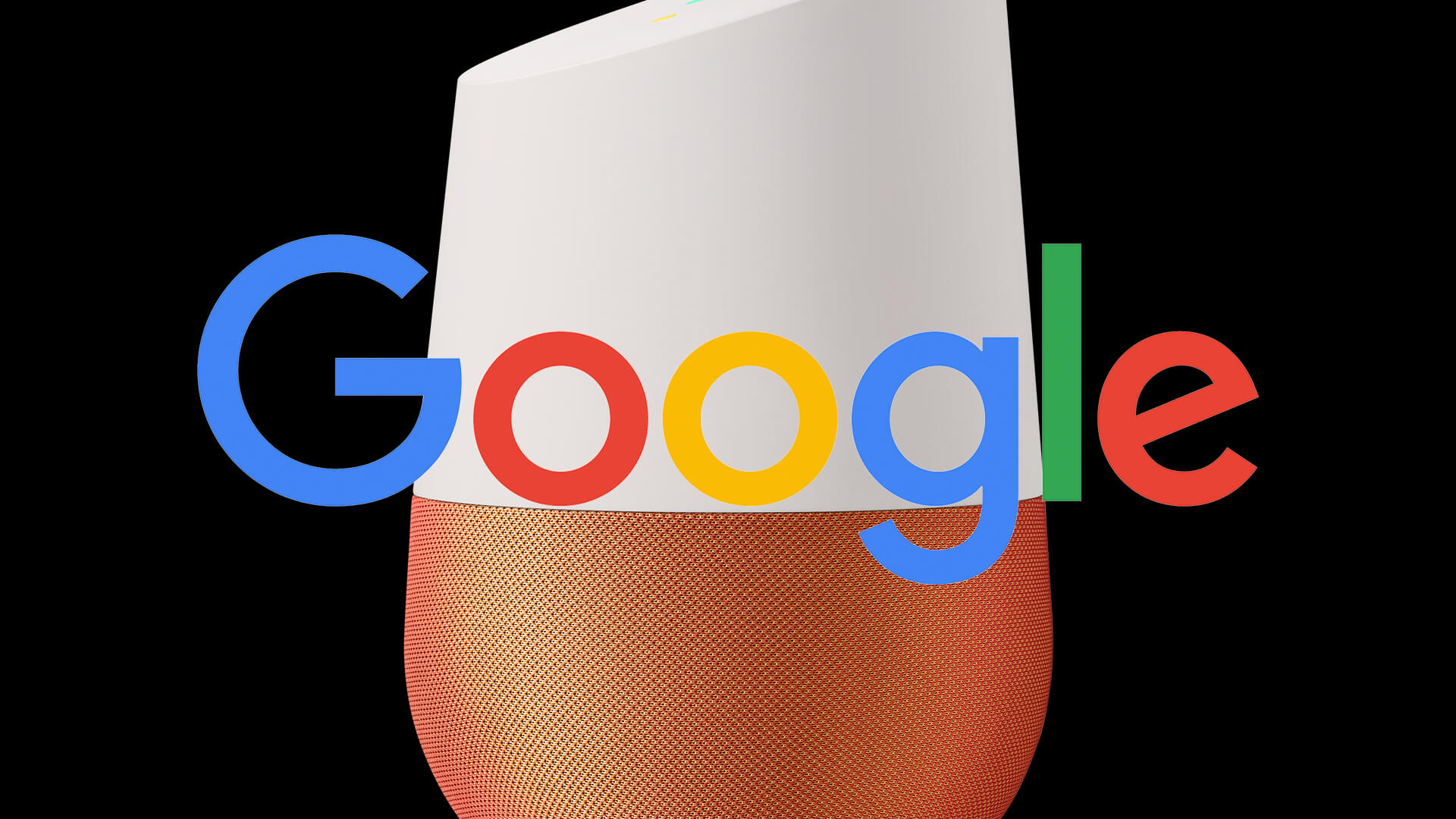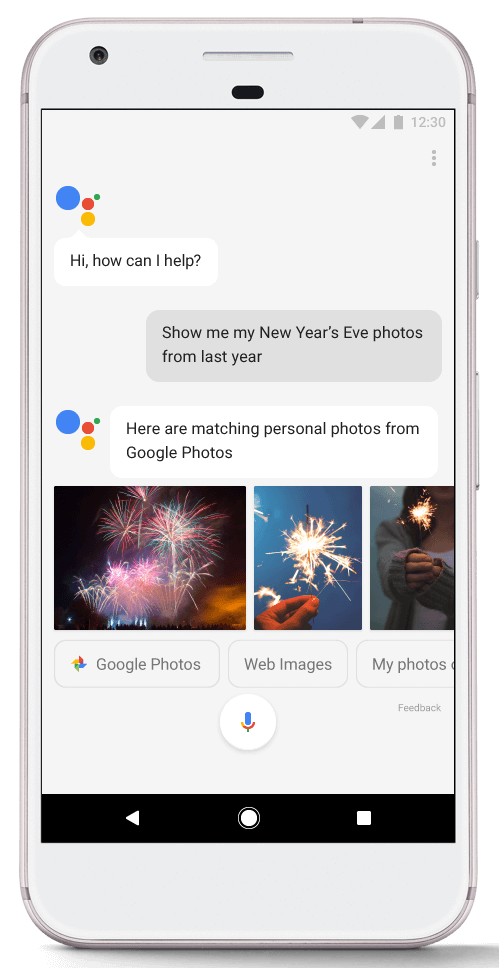With Google Assistant & Google Home, Google seeks to win the hands-free generation of search
Having won on desktop and mobile, Google now wants to succeed in an entire new area: hands-free search, especially within homes.

Google bucked the odds to win the first generation of internet search, on the desktop. It proved nimble to thrive in the transition to mobile search. Now it faces a third big generational change: hands-free search in the age of internet-connected devices. Enter Google Assistant and Google Home as how Google hopes to win.
Google Home takes on Amazon Echo
Until now, virtually all interactions people have had with Google have involved touch. You had to touch your keyboard to type, either on desktop or mobile. You had to touch your phone, even if speaking a search, in order to review results. Sure, you could listen to the first result. But touch was always there, at least as a crutch if not a preferred mode of review.
Contrast that with the Amazon Echo, the surprise hit device that allows anyone to just speak to it to get the weather, news updates, order products, play music and much more. Echo has no screen. Echo requires no touch. It’s as close to interacting with a real human being to get answers as you’ll find with any device out there — and Google hasn’t had a challenger, until now.
That’s a vulnerable position for Google to be in, if home assistants grow in the way smartphones have — including assistants built into all types of household appliances. Google Home gives Google the physical device to play in the space. But that device also needs new brainpower.
Google Assistant wants to talk
Google Assistant is that new brainpower, one with all that fancy machine learning and artificial intelligence. The important thing is that it’s designed to let you talk to Google.
Sure, you might think you talk to Google every day, typing in all your searches and getting back responses. But the Google Assistant is Google wanting to go beyond that, for people to think of it as an actual person they can converse with to get things done.
“This really represents our attempt to say it’s time to build a conversational interface with Google from the ground up,” said Scott Huffman, Google’s vice president of engineering who oversees Google Assistant, when we spoke last week.
Sure, people have been conversing with Google through voice search for years now. But Google Assistant is meant to go beyond handling those largely one-off requests and actually interact with people to get them answers in the way that a real-life assistant might.
Don’t judge Google Assistant by Allo
Google Assistant actually got its first public release last month, as part of Google’s new messaging app Allo.
With Allo, you can interact directly with Google Assistant to get information. However, my testing has found this to be less effective than simply doing Google searches. But where Google Assistant within Allo potentially shines is when it appears within a conversation, trying to help things out.
For example, if you’re chatting with someone about going to a movie, Google Assistant is right there to suggest movies to see, drawn from Google’s vast informational database:
It’s quick, convenient and doesn’t require going into another app or proactively conducting a search.
Allo still faces a tough challenge, in my view, to gain acceptance as a messaging app. Google Assistant being part of it might not be enough of a draw. But if Allo fails to take hold, that doesn’t mean Google Assistant is a failure.
That’s because Google Assistant is intended by Google to be integrated into all types of apps and devices, with the next two coming up — as announced today — being the new Google Pixel phones and Google Home.
A more conversant Google search app for phones?
Google is already baked into Android phones plus has a strong share in Apple iOS devices through its popular Google search app. You can speak and get answers that way. But Google Assistant is designed to go beyond that and bring more memory and assistance to those interactions.
Google Assistant should remember the conversations it has had with you anywhere, so that a discussion you had about something on Google Home or in an Allo conversation can be referred to, if needed.
Perhaps more important is the assistance part. With the current Google search app, results still come back largely in a list format. But with Google Assistant, prompts to take actions will be suggested:
Google Assistant also will have the contextual smarts that were previously known as “Now on Tap,” where if you’re viewing a web page, Google Assistant might suggest related information that might be helpful.
I’ve often forgotten that this feature exists on Android, given you have to make a deliberate long press on the home button to bring it up. But Google says that Google Assistant-equipped phones like the Pixel will have an animation for the home button that appears when you touch it, to help alert when extra information is on offer.
What about Android phones beyond the Pixel? How about integration of Google Assistant into the Google app on iOS?
“The goal eventually is we would have broad distribution, but we haven’t figure out the sequence or timeline. We thought it best to start small with the new Google phone,” Huffman said.
Back to Google Home
The real area to watch with Google Assistant will be Google Home. This is where the stakes are highest for Google. It disrupted existing players, when it emerged to dominate desktop. As mobile search developed, the company reacted and maintained its strength there.
Internet connected devices & home assistant devices are a new frontier. The good news for Google is that this area is one where Google Assistant should be in its ideal situation to be useful.
I’m a long-time Amazon Echo user. Like many who use the device, I love it. It really does have that “the future is here” feel when I can speak to it to have it start playing some music, to get a briefing of news headlines or add something to my shopping list.
Where Echo stumbles is when you give it something complicated, something where it really needs to go out beyond the defined set of information resources it taps into. Here, Google might shine. Google already has the experience in taking voice searches by phone for almost anything and translating those into answers drawn from the entire web.
With Google Home, all that broad experience should remain but be combined with compelling smart, narrow-case responses. Priced lower than Amazon Echo, Google Home also stands a good chance of strong sales and getting into many of our homes, assuming it actually works as promised with the early adopters.
About that (lack of) name
As Google Assistant comes into homes, one thing that isn’t coming with it is a human-sounding name. Apple has Siri as the name for its assistant. Microsoft has Cortana. Amazon has Alexa. Google has … Google Assistant?
“Believe me, we spent many, many hours discussing and debating it internally,” Huffman said, about giving Google Assistant a more friendly sounding name.
“Because this is an interface or representation of all of Google, it felt almost limited to say it’s going to be called ‘Joey’ or ‘Susie’ or whatever,” Huffman said.
I suppose the classic example of a computer you just speak to for answers — the Star Trek computer — is the same way. It had no catchy name. People just called it, “Computer.”
Huffman did promise that Google Assistant will have personality. In fact, Google has gone out-of-its-way to build that, as explained more in our other story.
At least “Google Assistant” has grown up into a formal name. When announced earlier this year at the Google IO conference, it was “Google assistant” — with a deliberate lower-case on the “assistant” part, as Google still didn’t seem comfortable giving it a proper name separate from Google itself.
Now it’s Google Assistant: one name for two things, the search platform Google has developed to be integrated into many products and the name of an assistant it hopes consumers learn to love.
For more about Google Assistant and Google Home, also see our coverage of today’s launch event by Google.
Contributing authors are invited to create content for Search Engine Land and are chosen for their expertise and contribution to the search community. Our contributors work under the oversight of the editorial staff and contributions are checked for quality and relevance to our readers. The opinions they express are their own.
Related stories
New on Search Engine Land

